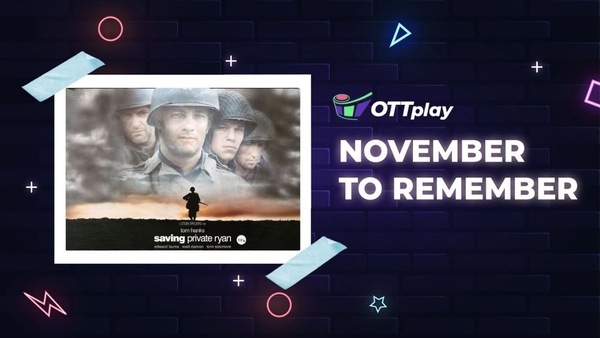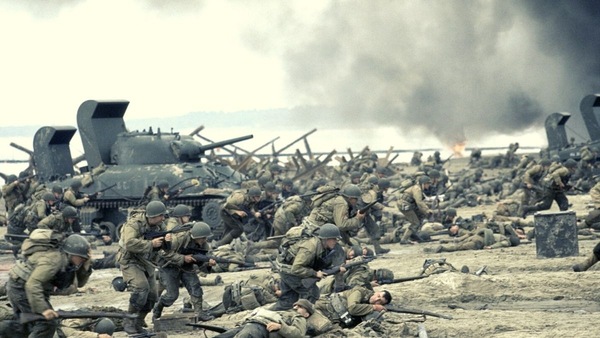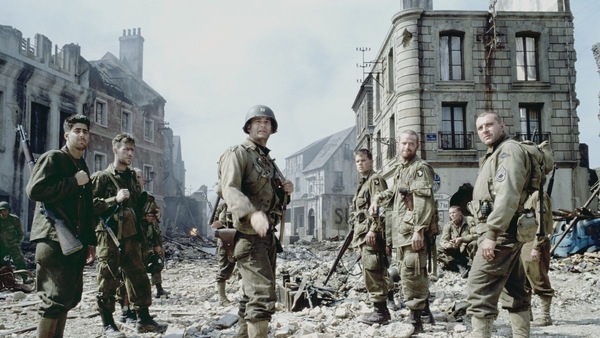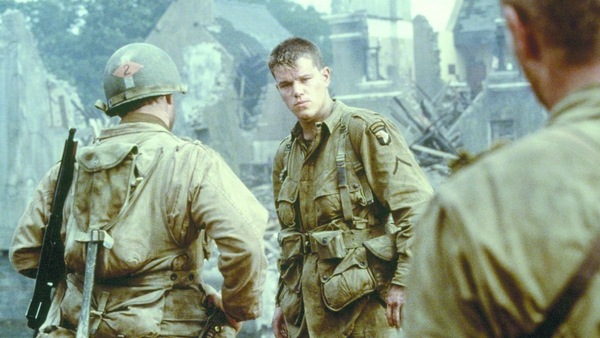November to Remember: Saving Private Ryan and the unglorified war
The Steven Spielberg film, which won five Academy Awards, is the epitome of the anti-war film

Last Updated: 08.24 PM, Nov 25, 2021
Through the annals of history, war has always been a fundamental part of civilisation. For the vast majority of mankind’s existence, the average life expectancy of the global population was less than 40, with war being one of the primary reasons. The world has been at relative peace since 1945 after the end of World War II. While there are civil wars and other atrocities still happening across the globe, an all-out war has become almost a thing of the past barring a few exceptions. As Yuval Noah Harari explains in his book Sapiens, countries used to go to war in the hopes of gaining power and wealth. However, over the last few decades, the cost of going to war outweighs the benefits, so human beings have found a more civilised way of settling differences whilst also striking bilateral trade deals.

Despite the general aversion to war and bloodshed, film industries across the globe have glorified war, striking a chord with audiences about patriotism, courage, honour, and glory. Even during the ancient and medieval eras street plays and theatre proactively fed the audience with ideas about the glory in warfare. It could be argued that it was essential in a way to protect themselves from invaders. However, in the modern era, the film plays a slightly different role. It was first used as a propaganda tool by Joseph Goebbels to establish the ideas of the Third Reich and Nazi ideology amongst the German populous. Since then it has been used even by Hollywood as revisionism of history to whitewash some of the atrocities. Films such as We Were Soldiers (2002), American Sniper (2015), The Green Berets (1968), and Pearl Harbour (2001) were not very subtle in how they used profound themes of patriotism as an excuse to further justify controversial issues. In fact, Bollywood and other regional film industries are guilty of the same, and ironically the movies are invariably terribly made.

Saving Private Ryan on the other hand occupies a very different space - something known as the anti-war film. Similar to several big-budget war films, the anti-war does have big explosions, gunfights, and intense moments. But the difference lies in how these are translated onto the screen. Instead of chest-thumping moments, the scenes in these films paint a picture of fear, trauma, pain, and despair. It is a deliberate plot device to evoke a sense of sorrow, tragedy, and horrors of war. The opening in the film depicting American soldiers landing on the shores of Normandy in France on D-Day will forever be etched in the memories of those who have seen the film. These scenes are not of gung-ho action sequences of brave soldiers, but of young men crying for their mothers as machine gun bullets tear through their bodies.

Spielberg portrayed war the way it should be, without the bells and whistles about glory and patriotism. The story of Saving Private Ryan poses several questions on moral complexities of why people should risk their lives for another. In the film, the group of soldiers under Captain Miller (Tom Hanks), on a mission to rescue one soldier (Private Ryan played by Matt Damon) beyond enemy lines, keeps questioning their orders as to why all of them have to risk their lives for just one man. Those who watched the film will empathise with their situation but will understand why Private James Ryan had to be sent back home. The journey that these soldiers undertake showcases their strengths and weaknesses as human beings. The narrative asks the viewers to ponder on what they are witnessing on screen. By the end of the film, despite the protagonists coming out on top, there is no sense of victory or cause for celebration, it is instead a poignant reflection of the losses people have suffered.
Band of Brothers (2001), the HBO TV show starring Damien Lewis in the lead, and Apocalypse Now (1979), directed by Francis Ford Coppola are a few other examples of films and TV shows that have used anti-war as their primary theme. The Rowan Atkinson series, Black Adder Goes Forth (1989), has cleverly used humour to depict the horrors at the trenches during World War I. These productions are glowing examples of how to find the right balance in writing a story on war.

